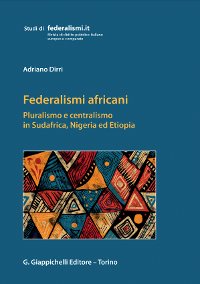
FOCUS - Human Rights N. 2 - 04/10/2019
Light on Article 14 between Discrimination by Association & Self-Identification Right. The Individual within the Group & the Group before the State in ECtHR's Molla Sali v. Greece
In the very much awaited judgement Molla Sali v. Greece, the Grand Chamber of the European Court of Human Rights held that the applicant’s inability to inherit under a public will made in her favor by her death husband, a member of the Muslim community of Western Thrace, was in violation of Article 14, read in conjunction with Article 1, Protocol No. 1, of the European Convention. Greece’s condemnation touches to the core the dilemma surrounding the conflicting relationships among members of a minority community and the community itself and that arising between the State, and its legitimacy to intervene on the dissident member’s behalf, vis-à-vis to the group. By refusing to fully endorse Greece’s system of protection towards the Muslim community of Western Thrace, the European Court of Human Rights has for the very first time confronted itself with the compliance with the European Convention of a minority rights regime centered on a legal pluralistic model, that exempts its members from the application of State laws in favour of a system of religious personal law. Moving far and beyond the specificities of Molla Sali v. Greece, the article seeks to examine the European Court’s approach towards minority rights, including the right to choose not to exercise a minority right, in the light of Article 14 ECHR. Within this perspective, the approach is twofold. First and foremost, the article will focus on the European Court’s finding of a discrimination by association on religious ground, without conversely ascertaining the alleged violation of Article 14 suffered by the applicant as qualified member of the minority. Second, taking into consideration the minority rights context, the article seeks to look at the European Court’s attempt to balance collective and individual rights through the lens of the Framework Convention’s right to free self-identification.The article aims at questioning whether the European Court of Human Rights is embracing a minority rights awareness throughout its case-law and whether is paving the way to new balancing strategies between dissident members and the minority community as a whole. The article argues that, despite the outcome of the judgement, the Grand Chamber has not yet taken side, neither has offered hints as to the proper convention approach to solve intra-communitarian conflicts, opting instead for a redesign of the legal question behind the case, by making use of the iura novit curia principle, centered not so much on the applicant, but rather on her husband. At the outset, the Judgement seems emblematic of the Grand Chamber’s attempt to save the best of both worlds. On the one hand, Greece is condemned on the basis of the unequal treatment reserved to those belonging to the Muslim community of Western Thrace with respect to Greek non-members on the ground that the Respondent State does not allow minority members to not identify themselves with the community. On the other, Greece is condoned for granting the Muslim community to quasi self-govern itself in violation of the principle of gender equality… (segue)
NUMERO 19 - ALTRI ARTICOLI
-
ITALIA - DOTTRINA
Territorio e comunità nel prisma della rigenerazione urbana
ITALIA - DOTTRINALa nomofilachia del giudice amministrativo tra Italia e Spagna
-
ITALIA - DOTTRINA
Interdittive antimafia e sofferenze costituzionali
ITALIA - DOTTRINAContributi in tema di 'regionalismo differenziato'
-
ITALIA - DOTTRINA
La Suprema Corte del Regno Unito difende (e definisce) la sovranità (e il governo) parlamentare
ITALIA - DOTTRINADal diritto delle costruzioni nelle città al governo del territorio
Execution time: 91 ms - Your address is 216.73.216.168



 Registrati
Registrati Login
Login
 Territorio e istituzioni
Territorio e istituzioni Africa
Africa Osservatorio di Diritto sanitario
Osservatorio di Diritto sanitario Osservatorio sul diritto elettorale
Osservatorio sul diritto elettorale Human Rights
Human Rights Storico focus
Storico focus Riforme istituzionali e forma di governo
Riforme istituzionali e forma di governo Lavoro Persona Tecnologia
Lavoro Persona Tecnologia America Latina
America Latina Osservatorio Trasparenza
Osservatorio Trasparenza Scarica il Documento integrale
Scarica il Documento integrale
 STUDI FEDERALISMI
STUDI FEDERALISMI





25/01/2023
14/10/2022
18/05/2022
22/09/2021
28/12/2020
27/07/2020
05/02/2020
04/10/2019
01/05/2019
26/12/2018
29/10/2018
25/06/2018
29/12/2017
28/07/2017
13/03/2017
07/10/2016
17/06/2016
22/01/2016
25/09/2015
03/07/2015
03/04/2015
16/01/2015
24/10/2014
20/06/2014
28/03/2014
20/12/2013
16/09/2013
17/05/2013
15/02/2013